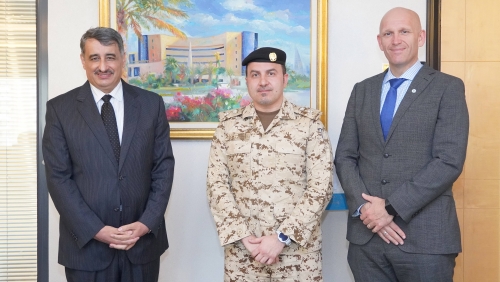RCSI names Prof. Alqahtani as founding Head of the Microbiology Department
TDT | Manama
The Daily Tribune – www.newsofbahrain.com
The Royal College of Surgeons in Ireland – Medical University of Bahrain (RCSI Bahrain) announced naming Professor Manaf Alqahtani, Clinical Professor in Microbiology, as the founding Head of the Microbiology Department under the School of Medicine.
The appointment recognises Alqahtani’s various contributions, including research impact at the national and global level, for the past two years. President of RCSI Bahrain, Professor Sameer Otoom said, “We look forward to Professor Alqahtani’s contributions to RCSI Bahrain and enhancing the experience of our students, and we wish him success in his new role.”
With the onset of the pandemic in 2020 and through his role as a member of the Bahrain National Taskforce for Combatting the Coronavirus (COVID-19), Professor Alqahtani has completed a total of 43 research projects related to COVID-19 in Bahrain, of which 20 were conducted in collaboration with RCSI Bahrain faculty, alumni and students, with a focus on Epidemiology and Public Health, diagnostics, vaccines and clinical and treatment projects.
In addition, with RCSI Bahrain’s sponsorship and in collaboration with the Bahrain Defence Force Hospital – Royal Medical Services and the Ministry of Health, Professor Alqahtani participated in conducting two randomised Clinical Trials, the first of their kind in the history of Bahrain and the University, which have led to establishing data-driven prevention and control policies for Bahrain’s response to COVID-19.
Professor Alqahtani commented, “Microbiology research is a rapidly-changing field and has been impacted by events that shaped medical students’ and the public’s perception of microbes, such as the emergence of globally significant diseases, threats of pandemic, increasing failure of formerly effective antibiotics and therapies to treat infectious diseases.
By educating our students of today, who will become the researchers of tomorrow, on the new tools being developed, technological advancements in the field and improved communication between physicians and clinical microbiologists, will lead to a better understanding of biology and how clinical microbiologists work.”
Related Posts

